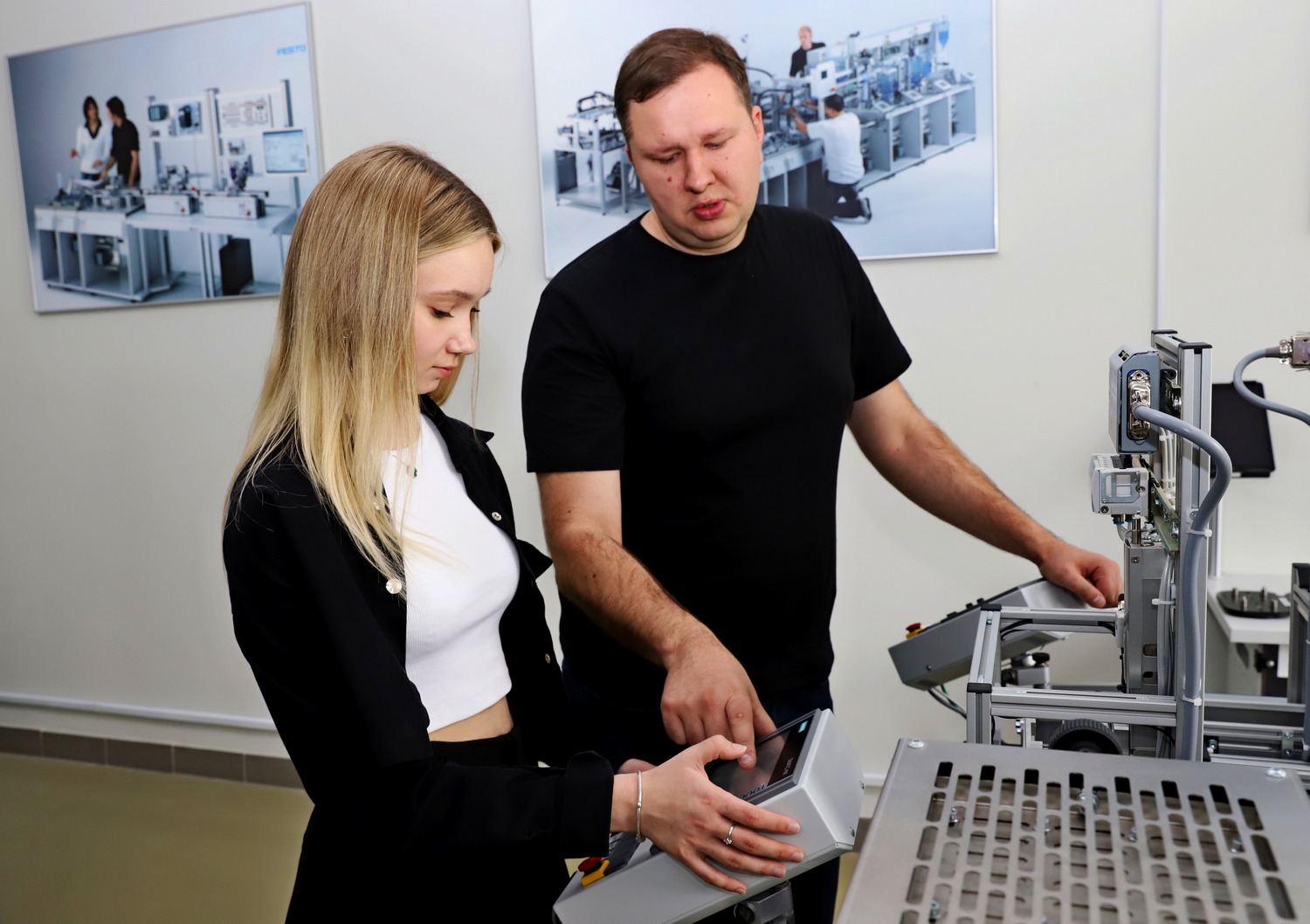Professional skill contests are more than just competitions; they play a vital role in equipping youth for jobs of the future..
Starting Strong: How Quality Training Fuels Success in Skill Competitions
September 3, 2024

Professional skill contests are not merely competitions; they are crucial in preparing young people for their future careers. These events offer invaluable learning experiences, enabling participants to sharpen their skills and gain practical knowledge that can give them an edge in the future job market.
In Belarus, the national ProfSkills Belarus competition stands out as a key event. Last year, over 350 students competed in 49 different disciplines.
According to the World Economic Forum data in the next five years, 23% of global jobs will change due to industry transformation, including through artificial intelligence and other text, image and voice processing technologies.
Competitions as Catalysts for Professional Growth.
Professional skills competitions help participants delve deeper into their fields of expertise. Beyond showcasing talent, these contests offer opportunities to refine skills, acquire new knowledge, and adapt to the evolving demands of the contemporary job market. For many young professionals, these events offer a chance to learn advanced technologies and work methods beyond the traditional educational system.
Beyond technical skills, competitions foster qualities like determination, perseverance, and teamwork, enhancing graduates' competitiveness in the job market.
The Importance of Quality Training for Coaches and Experts.
Success in these competitions depends heavily on preparation, and coaches and experts play a pivotal role. They not only impart knowledge but also inspire contestants to strive for excellence. High-quality training for coaches and experts lays the groundwork for strong teams capable of representing the country in international competitions.
Expert Insights: Pavel Sinitsa and Anna Platonova.
Pavel Sinitsa, an international coach in mechatronics, has been preparing Belarusian students for competitions for over 10 years. He noted that the demands of the field have evolved alongside technological advancements.

Pavel is confident that competing in these events gives young professionals a significant edge in their careers.
"We constantly collaborate with employers to understand what skills graduates need," said Pavel. "Based on this feedback, we update curricula and offer additional classes. This helps students enhance their qualifications and become top-notch specialists.”
"Winning a national competition in one’s field is like being recognized as the best. It makes job hunting easier, opens up better opportunities, and can lead to higher salaries," concluded the trainer.
However, Pavel emphasizes that reaching this level of success demands immense effort and dedication, with training periods ranging from 9 to 18 months. He compares preparing for competitions to training athletes: “Students get excited and driven to outperform their rivals, which fuels their professional growth. They refine techniques, seek more efficient ways to complete tasks, and learn technical English since international competitions often use the English language. This boosts their professionalism."
Anna Platonova, an international expert and coach of the Russian national team, underscores the importance of training teachers and coaches for competition success.

"You can’t teach what you don’t know. High performance requires well-trained teachers, coaches, and instructors. It’s not just about the equipment; it’s about how well they teach" (Anna Platonova).
Anna believes that forging a strong community of experts is key to elevating competitors.
"During training sessions, experts connect, share challenges, and collaborate on solutions. This networking is vital for developing motivated trainers who can cultivate strong specialists," said Anna.
Training Sessions: A Platform for Sharing Experience and Professional Growth.
In the spring and summer of 2024, with support from the "Developing Youth Innovation Potential for Accelerated Sustainable Development" project, workshops for experts in nine disciplines were held across the country. Two more workshops are currently ongoing.
Ninety-seven trainers from different parts of the country learned effective methods for preparing contestants. Also, these workshops foster a network of professionals who are ready to interact with each other in the future.
Professional skills competitions are vital for the development of modern vocational education and training systems, as they give young professionals the chance to develop the flexible and adaptive skills needed in today's workplaces. These competitions also foster the acquisition of up-to-date competences that are essential in a rapidly evolving technological landscape.

 Locations
Locations



